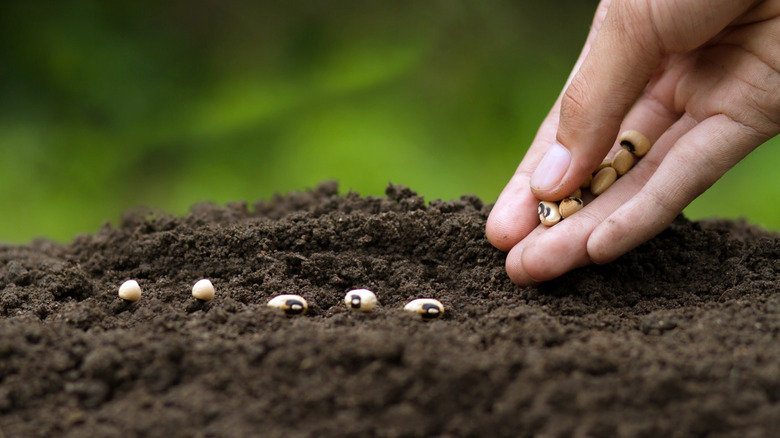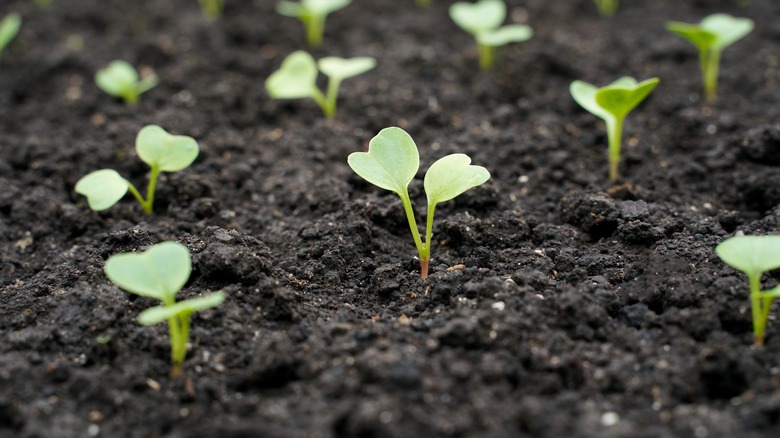Here's How Deep You Should Be Planting Your Seeds (& Why It's So Important)
Whether you're growing a container garden or a new in-ground garden, growing plants from seeds is definitely doable. Among the easiest plants to grow from seed are vegetables such as greens, peas, winter squash, and sweet potatoes, as well as flowers like marigolds, zinnias, sunflowers, nasturtiums, and cosmos. Even if you choose beginner-friendly flowers, fruits, and vegetables to grow from seed, though, long-term success is dependent on numerous factors. Not only do seeds require good quality soil, regular watering sessions, and proper sunlight exposure, but you will also need to plant seeds at the right depth, or else they may not germinate.
Planting seeds too shallowly or too deeply can be detrimental to the future of your plants. As a general rule of thumb, the majority of seeds need to be planted in a depth that is about twice their width. However, the exact depth at which you should plant seeds in soil can vary based on plant type, so it's always a good idea to refer to seed packages for more precise requirements, if available. Placing seeds at the incorrect depth could mean a stunted plant, or sometimes no germination at all.
How correct seed depth helps your plants germinate
Planting seeds in soil at a depth of two to three times their width is a good place to start if you don't have specific packet instructions handy. This is true even if you plan on transplanting future seedlings to another container or in the ground. Larger seeds tend to need more depth, while the smallest of seeds may only need to be pressed down into the top of the soil with a light covering of soil. No matter the depth, you can help ensure better chances of germination by creating evenly spaced furrows for seed placement before covering them with soil.
When seeds are planted too deeply, they will not have the right access to sunlight to promote growth. On the flip side, planting seeds too shallowly will not provide the plant with the amount of moisture it needs to thrive. While not as common of a mistake, shallowly planted seeds can even dry out before they germinate. Overall, seeds that are not planted correctly may not have adequate root growth, leading to damage and subsequent death.
It's also important to check the seed package for expiration dates before getting started. While the question of whether garden seeds can expire is complex, their germination rate can significantly decline after two years. This holds true whether you've planted seeds at the ideal soil depth or not. Soil temperature is another factor that can affect all seed depths, as conditions that are too cold are not conducive to germination. For the best results, wait until soil temperatures are at least 65 degrees Fahrenheit before planting seeds.

